Events
CEWEP Congress
Below you will find the list of speakers and panellists that will participate in the CEWEP Waste-to-Energy Congress 2025.
Welcome
by Aleksandra Dulkiewicz, Mayor of Gdánsk (TBC)
Welcome and Introduction
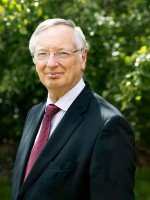 Paul De Bruycker is CEWEP president since 2017.
Paul De Bruycker is CEWEP president since 2017.
Paul obtained a master’s degree in bio-engineering at the UGent. He joined Indaver at its start in 1986 and held different management positions before he became CEO of the Indaver-group in 2011. He currently serves as Chairman Board of Directors Indaver.
With a career of over 40 years in the waste industry, Paul is a respected senior expert in waste management and waste legislation. He has contributed to several books and published a large amount of articles that are considered to be references in the environmental field and waste treatment industry. He holds board mandates both in companies and joint-ventures associated with Indaver as well as in federations and associations in the waste treatment and chemical industry. He is chairman of Vlaanderen Circulair, a partnership of the government, companies, civil society, and the knowledge community that together form the Flemish transition platform to the circular economy.
Indaver is a leading European waste management company specialised in the treatment and management of industrial and municipal waste. With 2000 employees Indaver generates a turnover of 650 mio EUR and manages about 6 million tonnes of waste.
What are the Benefits of Waste Law Implementation?
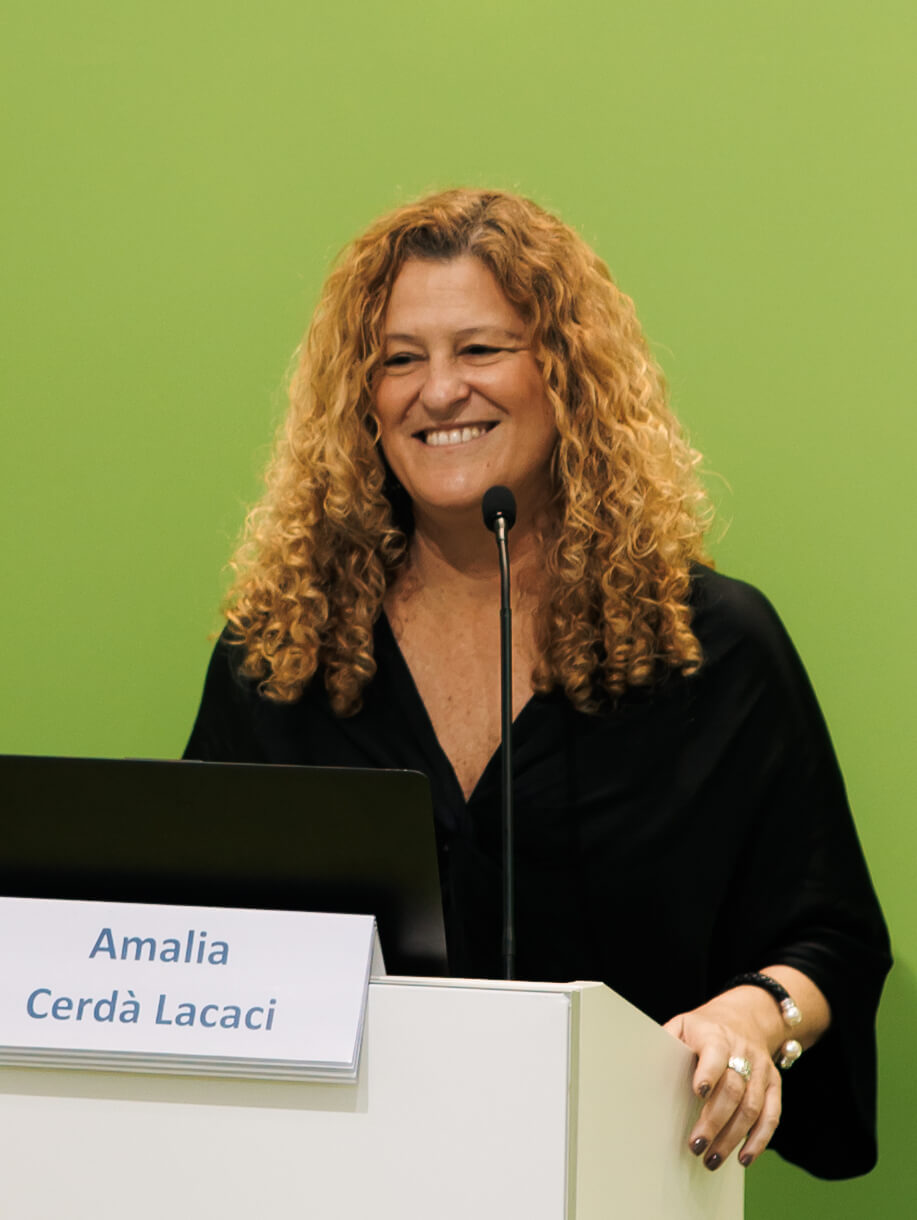 Amalia Cerdà Lacaci Amalia Cerdà Lacaci holds a PhD in Chemical Sciences and a Master Degree on Environmental Sciences and Engineering. Since 1997, she has held several positions in Environmental and Business Management fields at TIRME S.A., the municipal waste management company of Mallorca. Here, she currently serves as the Chief Strategy Officer, working on topics related to Sustainability, Circular Economy, Environment and Climate, Quality, Human Resources and Occupational Health & Safety. She is also a professor lector at the University of the Balearic Islands in the Chemistry Department.
Amalia Cerdà Lacaci Amalia Cerdà Lacaci holds a PhD in Chemical Sciences and a Master Degree on Environmental Sciences and Engineering. Since 1997, she has held several positions in Environmental and Business Management fields at TIRME S.A., the municipal waste management company of Mallorca. Here, she currently serves as the Chief Strategy Officer, working on topics related to Sustainability, Circular Economy, Environment and Climate, Quality, Human Resources and Occupational Health & Safety. She is also a professor lector at the University of the Balearic Islands in the Chemistry Department.
On behalf of the Spanish Association of Municipal Waste to Energy Plants (AEVERSU), Amalia participates in meetings and working groups at national and European level, amongst which as chair of CEWEP’s Working Group Emission Control. She has acted as advisor in the last revision of both the Waste Incineration and Waste Treatment BREF documents, being member of the corresponding Technical Working Groups set up by the European IPPC Bureau.
Amalia co-authored three books related to the automation of environmental analytical methods, and has several environmental research articles to her name. She has participated in several research projects of the European Union, Spanish, and Regional Governments.
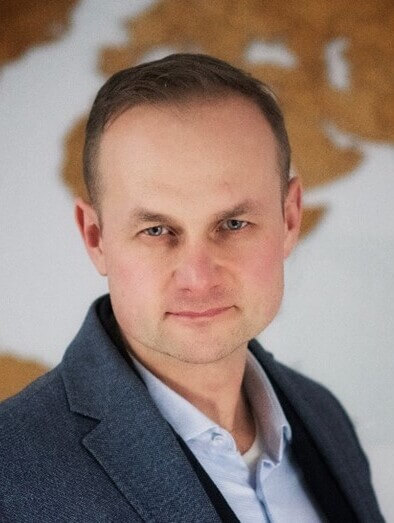 Jakub Bator is a recognised expert and consultant in the Waste-to-Energy sector. Until April 2025, he served as a Member of the Management Board of Krakowski Holding Komunalny S.A., where he was responsible for the operation of the Thermal Waste Treatment Plant in Cracow (Eco-incinerator). He now continues to support the company as an advisor to the President.
Jakub Bator is a recognised expert and consultant in the Waste-to-Energy sector. Until April 2025, he served as a Member of the Management Board of Krakowski Holding Komunalny S.A., where he was responsible for the operation of the Thermal Waste Treatment Plant in Cracow (Eco-incinerator). He now continues to support the company as an advisor to the President.
As co-founder and Vice President of the Association of Energy Producers from Waste (SPEO), and Vice President of the Confederation of European Waste-to-Energy Plants (CEWEP), his responsibilities include shaping the future of energy production from waste. Active membership in the European Federation of Local Energy Companies (CEDEC) further extends professional engagement. Since 2011, his responsibilities have included the role of Measure Authorising Officer for the construction of the Waste-to-Energy Plant, with a focus on managing resource distribution and securing project authorizations. Currently Jakub is also engaged in PhD studies at AGH University of Science and Technology in Krakow and his research is directed towards utilizing high-calcium fly ash from thermal waste processing in carbonation processes. Jakub’s career is focused on consistently improving management methods and supporting new, sustainable practices in the waste-to-energy field.
Fireside Chat
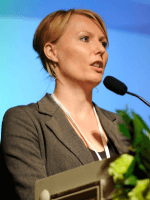 Karolina D’Cunha works for the European Commission’s Directorate General Environment as Deputy Head of Unit “From Waste to Resources”. She has over eleven years’ experience on the development, adoption, and implementation of the European waste management policies and laws. Previously to her current position, she was responsible for natural capital & ecosystem health where she coordinated the drafting and adoption of the EU Biodiversity Strategy for 2030 and its subsequent implementation and was part of the team negotiating a new Law on nature restoration. Karolina had also worked on Circular Economy and various aspects of sustainable production and consumption, including the elaboration of the Commission’s Circular Economy Action Plan, the Plastics Strategy, and a new Directive restricting the use of certain single-use plastic items.
Karolina D’Cunha works for the European Commission’s Directorate General Environment as Deputy Head of Unit “From Waste to Resources”. She has over eleven years’ experience on the development, adoption, and implementation of the European waste management policies and laws. Previously to her current position, she was responsible for natural capital & ecosystem health where she coordinated the drafting and adoption of the EU Biodiversity Strategy for 2030 and its subsequent implementation and was part of the team negotiating a new Law on nature restoration. Karolina had also worked on Circular Economy and various aspects of sustainable production and consumption, including the elaboration of the Commission’s Circular Economy Action Plan, the Plastics Strategy, and a new Directive restricting the use of certain single-use plastic items.
Energy Policy Implementation and WtE: What Does it Mean for District Heating?
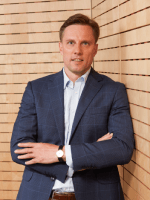 Tomasz Surma, Regulatory and Public Affairs Director at Veolia Poland and Expert at Polish DH association – IGCP
Tomasz Surma, Regulatory and Public Affairs Director at Veolia Poland and Expert at Polish DH association – IGCP
PhD, electrical engineering, graduated from Warsaw Technical University, Poland, MSc from AGH University of Science and Technology Cracow and Warsaw School of Economics MBA. He gained professional experience at universities and in energy entities. Currently employed at Veolia Energia Polska, energy utility. He is responsible for preparing market analyses, the impact of regulations on the activities of energy enterprises, and monitoring the impact of energy generation on the environment.
Author of and co-author of dozens of publications on energy market, renewable energy resources, energy efficiency, energy policy and reliability of power systems.
Keynote Intro
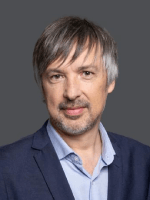 Krzysztof Bolesta is an appointed official of the European Commission, where he worked from 2004 to 2012 and from 2020 to 2024. From 2000 to 2004, he supported the accession negotiations and Poland’s adaptation to EU requirements in the areas of ‘energy’ and ‘research and development’.
Krzysztof Bolesta is an appointed official of the European Commission, where he worked from 2004 to 2012 and from 2020 to 2024. From 2000 to 2004, he supported the accession negotiations and Poland’s adaptation to EU requirements in the areas of ‘energy’ and ‘research and development’.
Between 2012 and 2015, he was a member of the political cabinet of two Polish Ministers of the Environment and a member of the supervisory board of the provincial branch of the National Fund for Environmental Protection and Water Management in Lublin. He was involved in the negotiation regarding the second European energy and climate change package. In addition, he served as an advisor to the President of Poland at COP19 (United Nations Climate Change Conference).
From 2016 to 2018, he was a research director at the Policy Insight think tank. Moreover, he co-founded the NGO, the Foundation for the Promotion of Electric Vehicles, where he served as vice-president from 2018 to 2020.
He participated in two Euro-Atlantic exchange programmes, the US State Department’s International Leadership Programme and the German-American Marshall Fund programme.
In 2014, the President of the Republic of Poland awarded him the Silver Cross for services to strengthen and develop European integration.
Carbon Removals Through Bioenergy with Carbon Capture and Storage (BECCS)
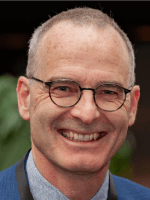 Johan Börje has more than 30 years experience in international relations, technology, sustainability, circular economy and energy. At Stockholm Exergi he played a key role in the company’s successful application to the first round of grants from the EU Innovation Fund. Today, his job is to secure additional funding for Stockholm Exergi’s BECCS project, with particular focus on the Voluntary Carbon Market. Johan is directly involved in policy work related to climate accounting and methodologies for certification of carbon removals. He is the company’s representative in the Negative Emissions Platform.
Johan Börje has more than 30 years experience in international relations, technology, sustainability, circular economy and energy. At Stockholm Exergi he played a key role in the company’s successful application to the first round of grants from the EU Innovation Fund. Today, his job is to secure additional funding for Stockholm Exergi’s BECCS project, with particular focus on the Voluntary Carbon Market. Johan is directly involved in policy work related to climate accounting and methodologies for certification of carbon removals. He is the company’s representative in the Negative Emissions Platform.
Panel Discussion: How WtE Operators Across Europe Envision Carbon Capture?
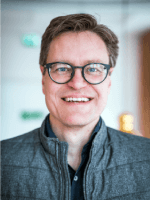 Dr Björn Fredriksson Möller works at Öresundskraft’s Innozhero project with business and strategy. He holds a Ph D in Energy Sciences and Carbon Capture from Lund University and has been working within business development and public affairs in both power plants and biomethane upgrading at E.ON, St1 and Öresundskraft. Öresundskraft’s Innozhero project in Helsingborg is one of the Waste-to-Energy CCS projects funded by the European Innovation Fund.
Dr Björn Fredriksson Möller works at Öresundskraft’s Innozhero project with business and strategy. He holds a Ph D in Energy Sciences and Carbon Capture from Lund University and has been working within business development and public affairs in both power plants and biomethane upgrading at E.ON, St1 and Öresundskraft. Öresundskraft’s Innozhero project in Helsingborg is one of the Waste-to-Energy CCS projects funded by the European Innovation Fund.
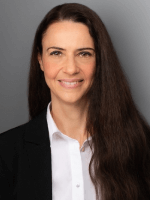 Sarah Endres, M.A. and MBM, is Deputy Head Business Development at EEW Energy from Waste GmbH. Having taken EEW’s two sewage sludge mono incineration projects in Helmstedt and Stavenhagen successfully through the development, planning, procurement and permitting phase, she has focused on greenhouse gas emission reduction projects since 2020. In June 2020, she was appointed Project Manager for EEW’ carbon capture project in Delfzijl, the Netherlands. In addition, she is in charge of developing further flagship CCUS projects that are pursued in Germany. Prior to her work for EEW, she was active as a consultant in the field of energy. This included roles as Project Director at the German Energy Agency (dena) and market research institute GfK Marktforschung.
Sarah Endres, M.A. and MBM, is Deputy Head Business Development at EEW Energy from Waste GmbH. Having taken EEW’s two sewage sludge mono incineration projects in Helmstedt and Stavenhagen successfully through the development, planning, procurement and permitting phase, she has focused on greenhouse gas emission reduction projects since 2020. In June 2020, she was appointed Project Manager for EEW’ carbon capture project in Delfzijl, the Netherlands. In addition, she is in charge of developing further flagship CCUS projects that are pursued in Germany. Prior to her work for EEW, she was active as a consultant in the field of energy. This included roles as Project Director at the German Energy Agency (dena) and market research institute GfK Marktforschung.
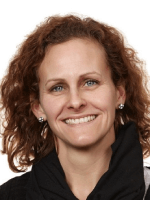 Jannicke Gerner Bjerkås is Director CCS and Carbon Markets in Celsio, Oslo’s district heating company. She led the developing Celsio’s full-scale CCS project on waste-to-energy in Oslo from 2018 until construction start. She is now head of the benefit realization and commercial development of CCS. Jannicke has expertise in developing CO2 capture and climate technology as well as energy recovery, recycling and biological treatment of organic waste, and also has extensive management experience as a.o Head of HR and Communication and Chief of Staff. She is a former Air Force officer with 4 years of education from the Norwegian Air Force Academy, and 10 years of military service. She has an MBA and a Master of Management from BI Norwegian Business School.
Jannicke Gerner Bjerkås is Director CCS and Carbon Markets in Celsio, Oslo’s district heating company. She led the developing Celsio’s full-scale CCS project on waste-to-energy in Oslo from 2018 until construction start. She is now head of the benefit realization and commercial development of CCS. Jannicke has expertise in developing CO2 capture and climate technology as well as energy recovery, recycling and biological treatment of organic waste, and also has extensive management experience as a.o Head of HR and Communication and Chief of Staff. She is a former Air Force officer with 4 years of education from the Norwegian Air Force Academy, and 10 years of military service. She has an MBA and a Master of Management from BI Norwegian Business School.
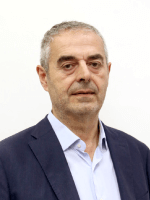 Stefano Tondini is a chemical engineer who graduated from Bologna University (Italy). With a career spanning almost 30 years, he has always been at the forefront of waste management and the environmental sector. He has been working since 2009 at HERAmbiente SpA, part of the HERA Group, a leader in Italy in the waste treatment and recovery of the energy and material sector. Since 2014, he has held the position of Head of Waste to Energy Plants, managing seven different plants mainly located around north-eastern Italy.
Stefano Tondini is a chemical engineer who graduated from Bologna University (Italy). With a career spanning almost 30 years, he has always been at the forefront of waste management and the environmental sector. He has been working since 2009 at HERAmbiente SpA, part of the HERA Group, a leader in Italy in the waste treatment and recovery of the energy and material sector. Since 2014, he has held the position of Head of Waste to Energy Plants, managing seven different plants mainly located around north-eastern Italy.
In 2021, he started researching decarbonization technologies for the application to WtE plants. In 2023, he coordinated the development of the “CapturEste CCS project” to fully abate fossil CO2 emissions from the Ferrara WtE plant, which has been awarded by the EU Innovation Fund under the fourth call for mid-scale projects
Overview of WtE Markets
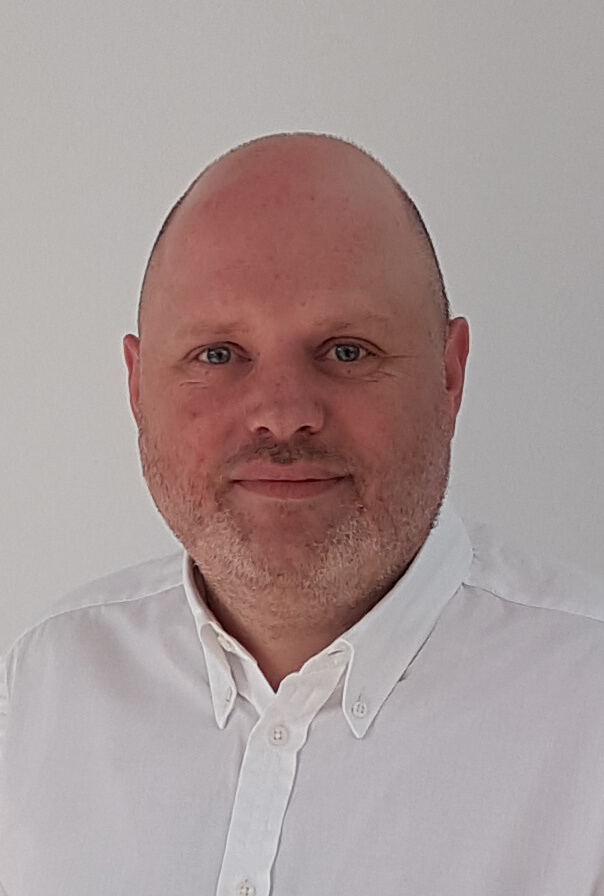 Mark Döing has over 20 years of experience in the waste bioenergy sector, both in a managerial and advisory capacity. After studying geography with minors in public law and politics, Mark began his career in the consulting business in 2000. In 2005, Mark founded ecoprog and has since acted as Managing Director of the company. During this time, he also took responsibility for several waste market projects such as market assessment and due diligence, modelling of future waste streams, feedstock potential for waste-to-energy and bioenergy projects, or sewage sludge market development. Under Mark`s leadership ecoprog has grown to a well-known market insider of the global waste and bio markets, offering both, individual advisory as well as market intelligence products.
Mark Döing has over 20 years of experience in the waste bioenergy sector, both in a managerial and advisory capacity. After studying geography with minors in public law and politics, Mark began his career in the consulting business in 2000. In 2005, Mark founded ecoprog and has since acted as Managing Director of the company. During this time, he also took responsibility for several waste market projects such as market assessment and due diligence, modelling of future waste streams, feedstock potential for waste-to-energy and bioenergy projects, or sewage sludge market development. Under Mark`s leadership ecoprog has grown to a well-known market insider of the global waste and bio markets, offering both, individual advisory as well as market intelligence products.
Practical Example: Can WtE compete with Landfills?
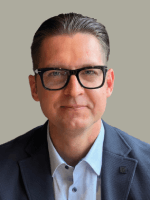
Yuriy Starodubtsev is part of the Kanadevia Project Development team, contributing to several strategic initiatives where KVI acts both as project developer and investor—notably including the Casablanca project.
Prior to joining KVI, Yuriy advanced complex EPC projects, optimizing supply chains and aligning operations with sustainability standards. He delivered at companies such as GE Power, Hilti Group, and Alstom Power and holds a degree in Computer Systems Engineering, as well as a postgraduate degree in Management, Technology, and Economics from ETH Zurich.
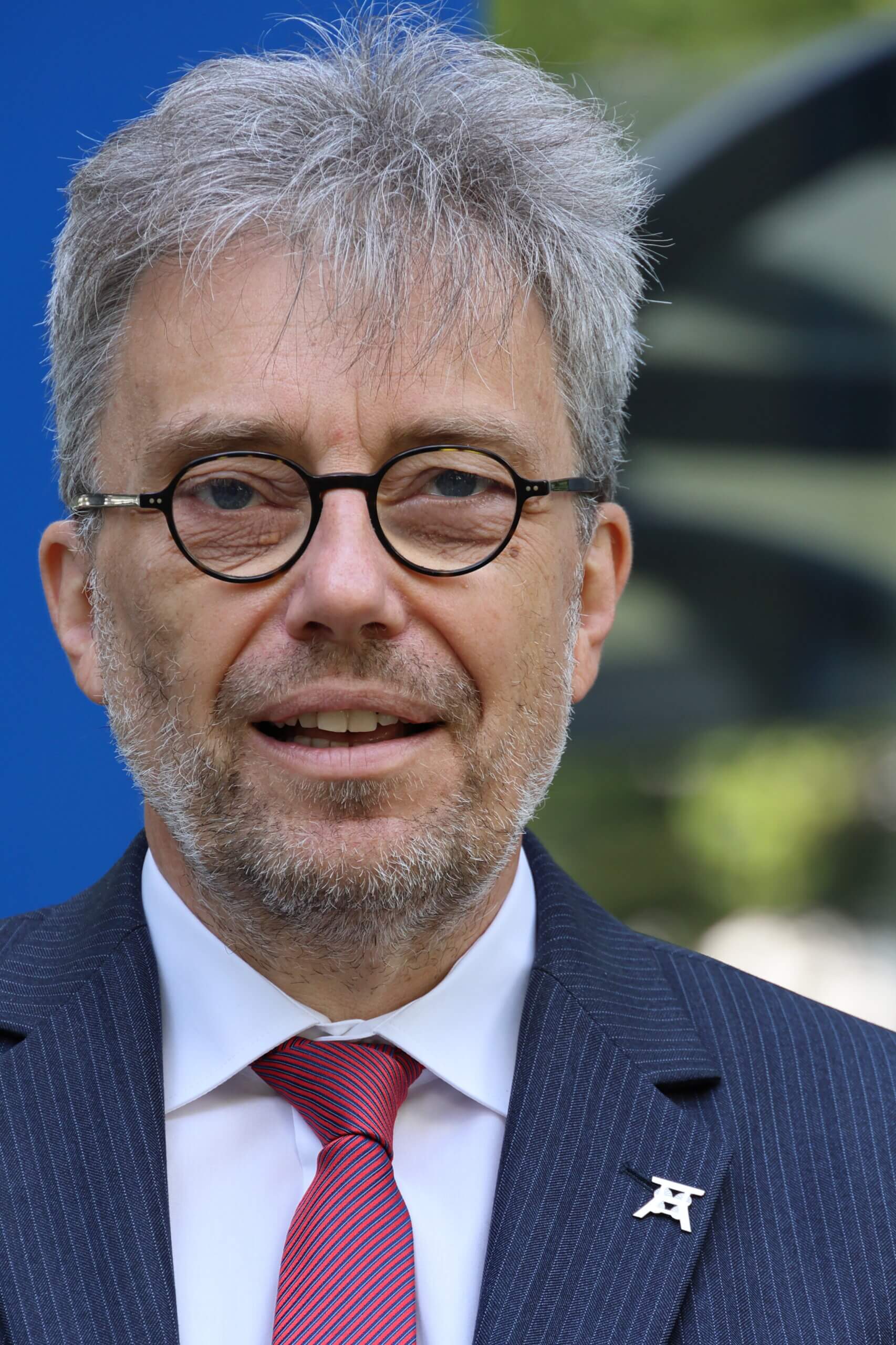 Dr Siegfried Scholz is industrial engineer by education. He did his phD in power plant engineering in the field of two-phase separation in 1994.
Dr Siegfried Scholz is industrial engineer by education. He did his phD in power plant engineering in the field of two-phase separation in 1994.
After various roles in application engineering and sales management in the boiler and combustion industries, where he was responsible for technical sales of industrial boilers, process burners, flares and thermal oxidisers, he served in various management roles and became Managing Director for Standardkessel Baumgarte in 2012. In 2020 he had been elected president for ESWET, a role he continues to fill after moving on to Kanadevia Inova in 2024 where he now serves as Country President Germany.
Chemical Recycling
 Geert Torremans is an accomplished Assurance and Improvement Manager at Indaver, bringing over 25 years of expertise in the waste management industry, with a specialized focus on waste and product classification, waste processing, and transboundary shipment of waste. Geert has significantly contributed to advancing sustainable waste management practices. His extensive experience and dedication to sustainable and environmental sound processing of waste have made him a respected knowledge holder in the field. At Indaver, Geert continues to drive innovation and improvement, ensuring efficient and responsible waste management solutions.
Geert Torremans is an accomplished Assurance and Improvement Manager at Indaver, bringing over 25 years of expertise in the waste management industry, with a specialized focus on waste and product classification, waste processing, and transboundary shipment of waste. Geert has significantly contributed to advancing sustainable waste management practices. His extensive experience and dedication to sustainable and environmental sound processing of waste have made him a respected knowledge holder in the field. At Indaver, Geert continues to drive innovation and improvement, ensuring efficient and responsible waste management solutions.
Panel: Looking into the Crystal Ball
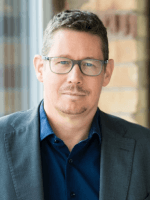 Dr Lars Börger studied Chemistry and General Management in Bielefeld, Marburg and St. Gallen and holds a PhD in Material Science from the Max-Planck-Institute for Colloids and Interface Science. He worked with BASF for 17 years in Germany and China in the field of Polymer Research, Specialty Chemicals and Biopolymers in leading positions, incl. the initiating first lead for mass balancing and the global responsibility for the biopolymers business, before joining Neste to build up the business of renewable and circular feedstock for the chemical industry. He founded Neste Germany, is book author and was member of the board of the European Bioplastics as well as the Renewable Carbon Initiative (RCI). Since May 2024 he is running his own consultancy Re+Spire Beratung, that targets to support the transformation towards circular bioeconomy and worked with clients such as Vioneo (part of A.P.Moeller Holding) and BASF. Since March 2025 he is CEO of nova institute, the leading think tank for circular economy.
Dr Lars Börger studied Chemistry and General Management in Bielefeld, Marburg and St. Gallen and holds a PhD in Material Science from the Max-Planck-Institute for Colloids and Interface Science. He worked with BASF for 17 years in Germany and China in the field of Polymer Research, Specialty Chemicals and Biopolymers in leading positions, incl. the initiating first lead for mass balancing and the global responsibility for the biopolymers business, before joining Neste to build up the business of renewable and circular feedstock for the chemical industry. He founded Neste Germany, is book author and was member of the board of the European Bioplastics as well as the Renewable Carbon Initiative (RCI). Since May 2024 he is running his own consultancy Re+Spire Beratung, that targets to support the transformation towards circular bioeconomy and worked with clients such as Vioneo (part of A.P.Moeller Holding) and BASF. Since March 2025 he is CEO of nova institute, the leading think tank for circular economy.
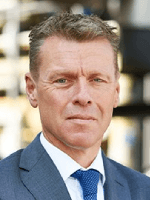 Michiel Timmerije is a professional with extensive experience in the energy and waste sector. Michiel has held the position of Director Energy & Residues at AVR Afvalverwerking B.V. since 2013, where he has been responsible for managing the energy and residues portfolio. Under his leadership, AVR has grown into the largest district heating producer in the Netherlands. Michiel’s achievements include the development of AVR’s carbon strategy, aiming for no additional fossil CO2 emissions by 2030, and the realization of the world’s first commercial-sized CO2 capture and utilization plant at an energy-from-waste facility. Before joining AVR, Michiel held various positions at Van Gansewinkel Group B.V., a fully integrated waste management group, where he was responsible for a number of large capex programs in both energy and waste. Michiel holds a degree in electrical engineering and is a representative of the Dutch Waste Management organization within CEWEP as a deputy president.
Michiel Timmerije is a professional with extensive experience in the energy and waste sector. Michiel has held the position of Director Energy & Residues at AVR Afvalverwerking B.V. since 2013, where he has been responsible for managing the energy and residues portfolio. Under his leadership, AVR has grown into the largest district heating producer in the Netherlands. Michiel’s achievements include the development of AVR’s carbon strategy, aiming for no additional fossil CO2 emissions by 2030, and the realization of the world’s first commercial-sized CO2 capture and utilization plant at an energy-from-waste facility. Before joining AVR, Michiel held various positions at Van Gansewinkel Group B.V., a fully integrated waste management group, where he was responsible for a number of large capex programs in both energy and waste. Michiel holds a degree in electrical engineering and is a representative of the Dutch Waste Management organization within CEWEP as a deputy president.
Community Relations and Impacts on Business and Operations
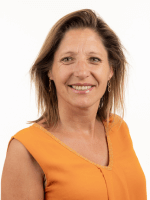 Silvia Colazzo is a seasoned Communications Manager with over 30 years of experience in the waste management sector. She holds master’s degrees in Communication Sciences and Germanic Philology. Silvia began her career at the Flemish Waste Agency (OVAM), where she developed public awareness campaigns on source separation, home composting, and waste prevention. Since 1995, she has led marketing and communications for the Municipal Solid Waste division at Indaver. Her work supports major initiatives including Indaver’s one-million-tonne waste-to-energy facility, the ECLUSE steam network, the Antwerp North Heat Network, and the FOSTER monosludge waste-to-energy project.
Silvia Colazzo is a seasoned Communications Manager with over 30 years of experience in the waste management sector. She holds master’s degrees in Communication Sciences and Germanic Philology. Silvia began her career at the Flemish Waste Agency (OVAM), where she developed public awareness campaigns on source separation, home composting, and waste prevention. Since 1995, she has led marketing and communications for the Municipal Solid Waste division at Indaver. Her work supports major initiatives including Indaver’s one-million-tonne waste-to-energy facility, the ECLUSE steam network, the Antwerp North Heat Network, and the FOSTER monosludge waste-to-energy project.
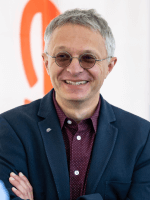 Andrius Kasparas is communication partner for Gren in Latvia and Lithuania. He is a consultant, managing partner at public relations agency, lecturer, and author with more than 25 years of experience in public relations. He has created, managed, and participated in more than a hundred public relations projects in the business and NGO sectors; has extensive experience consulting in energy sector; has lectured in PR and marketing communications at the university level; has given talks at various PR conferences and seminars; and has participated in numerous professional contest juries.
Andrius Kasparas is communication partner for Gren in Latvia and Lithuania. He is a consultant, managing partner at public relations agency, lecturer, and author with more than 25 years of experience in public relations. He has created, managed, and participated in more than a hundred public relations projects in the business and NGO sectors; has extensive experience consulting in energy sector; has lectured in PR and marketing communications at the university level; has given talks at various PR conferences and seminars; and has participated in numerous professional contest juries.
Communication Strategy of a New Plant
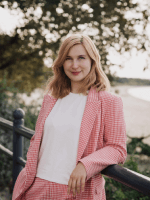 Marta Bańka is spokesperson for the Port of Clean Energy. From 2013 to 2024, she was responsible for communication, promotion, and media relations at the Institute of Urban Culture. Creator and co-organizer of the Marketing in Culture Conference (editions 2016–2024). A graduate of organisational psychology, management, and marketing at the University of Gdańsk. She completed postgraduate studies in Content Marketing, Storytelling, and Web Writing at the WSB University. She is currently pursuing an MBA in Diplomacy at the Vistula University. As a leader in the Polish Scouting Association (ZHP), she led international communication and marketing for the projects Polska World Scout Jamboree 2023 – candidate (2015–2017) and the European Jamboree 2020+1 (2019–2021).
Marta Bańka is spokesperson for the Port of Clean Energy. From 2013 to 2024, she was responsible for communication, promotion, and media relations at the Institute of Urban Culture. Creator and co-organizer of the Marketing in Culture Conference (editions 2016–2024). A graduate of organisational psychology, management, and marketing at the University of Gdańsk. She completed postgraduate studies in Content Marketing, Storytelling, and Web Writing at the WSB University. She is currently pursuing an MBA in Diplomacy at the Vistula University. As a leader in the Polish Scouting Association (ZHP), she led international communication and marketing for the projects Polska World Scout Jamboree 2023 – candidate (2015–2017) and the European Jamboree 2020+1 (2019–2021).
Comedian’s Perspective on Waste-to-Energy
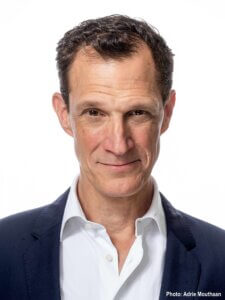 Gregory Shapiro, Comedian, American, Dutchman. (And the voice of the ‘Netherlands Second’ video with over 50 million views online.) Shapiro was the host of Comedy Central News: “because Dutch news is news too.” His standup specials have appeared on Dutch BNN-VARA and HumorTV. And he helped establish the Amsterdam comedy theater Boom Chicago, which launched the careers of alumni like Seth Meyers, Jordan Peele and the creators of Ted Lasso.
Gregory Shapiro, Comedian, American, Dutchman. (And the voice of the ‘Netherlands Second’ video with over 50 million views online.) Shapiro was the host of Comedy Central News: “because Dutch news is news too.” His standup specials have appeared on Dutch BNN-VARA and HumorTV. And he helped establish the Amsterdam comedy theater Boom Chicago, which launched the careers of alumni like Seth Meyers, Jordan Peele and the creators of Ted Lasso.
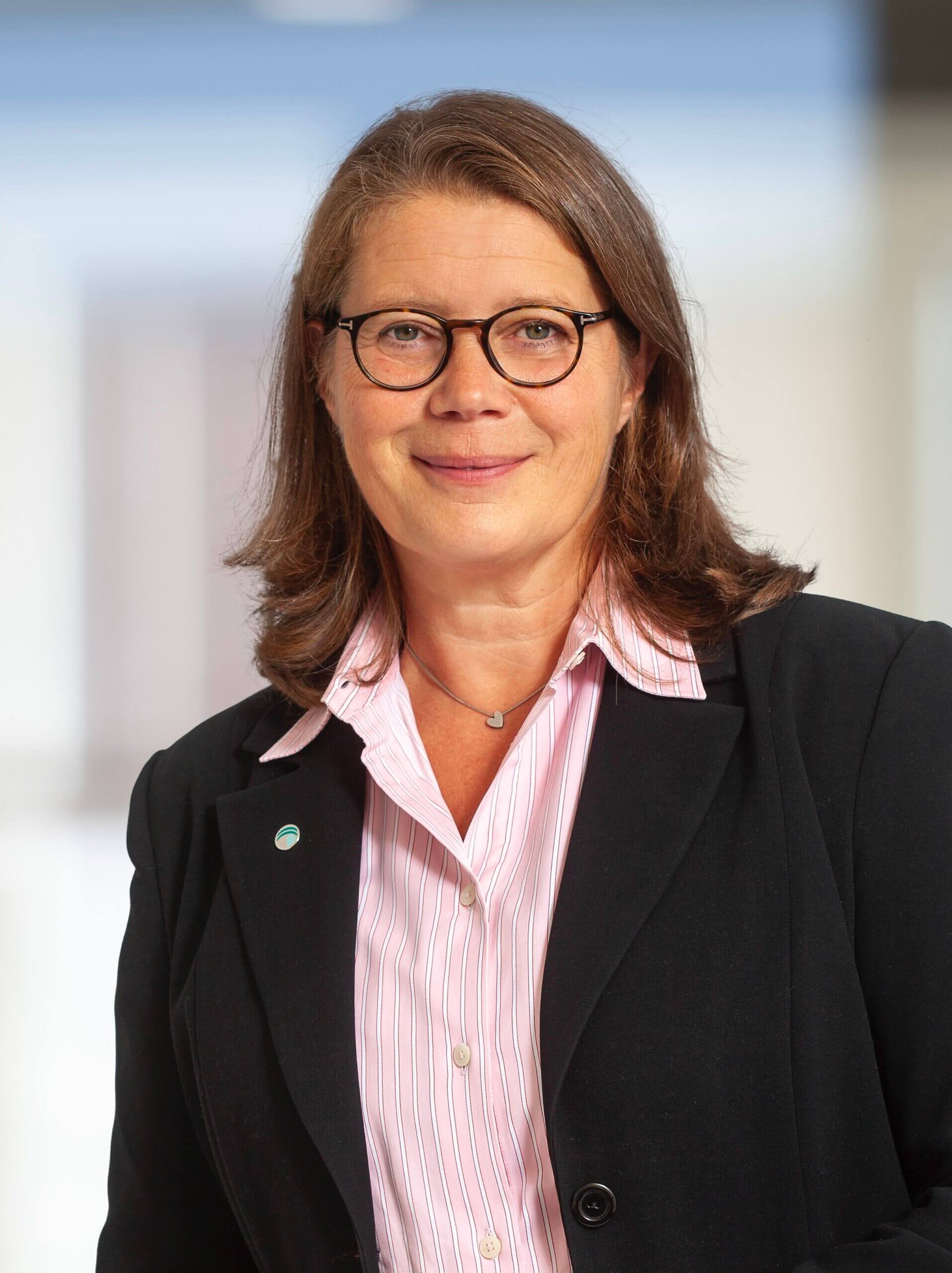 Katarina Sundberg is a legal expert in Public Affairs & Environmental Policy with a master’s degree in law from Stockholm University. With extensive experience in governmental affairs, she has served as a senior adviser in Sweden’s Government Offices, focusing on environmental sustainability, municipal responsibilities, and legislative frameworks. Her expertise extends to parliamentary work, having contributed to policy development in the Swedish Parliament’s Environment and Agriculture Committee.
Katarina Sundberg is a legal expert in Public Affairs & Environmental Policy with a master’s degree in law from Stockholm University. With extensive experience in governmental affairs, she has served as a senior adviser in Sweden’s Government Offices, focusing on environmental sustainability, municipal responsibilities, and legislative frameworks. Her expertise extends to parliamentary work, having contributed to policy development in the Swedish Parliament’s Environment and Agriculture Committee.
Katarina has a background in international negotiations, having represented Sweden within the EU and globally. From 2016 to 2019, she held the role of Secretary-General for Sweden’s Agenda 2030 Delegation, leading the Swedish implementation the UN’s Sustainable Development Goals. Since 2020, Katarina has been serving as a Senior Public Affairs Officer at Avfall Sverige – Swedish Waste Management – where she continues to drive policy initiatives in waste management and sustainability. Avfall Sverige has 400 members from both the public – all municipalities as well as municipal companies – and the private waste management sectors.
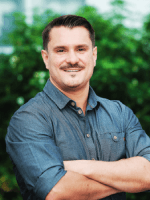 Fabio Poretti holds a Double Master’s degree in Mechanical Engineering at the University of Connecticut and in Energy Engineering – Power Production at the Politecnico di Milano. After studies, he followed-up as a research fellow fostering academic investigation into industrial practice mainly in the field of material and energy recovery from waste. Fabio covers the position of Technical & Scientific Officer at CEWEP. He is responsible for Energy&Climate policies, together with project management and coordination. Fabio worked as leading author of the Climate Roadmap of the European Waste-to-Energy Sector – The Path to Carbon Negative. He is also an active member of the EU Commission’s Carbon Removals Expert Group, focusing in particular on industrial carbon removals such as BioCCS.
Fabio Poretti holds a Double Master’s degree in Mechanical Engineering at the University of Connecticut and in Energy Engineering – Power Production at the Politecnico di Milano. After studies, he followed-up as a research fellow fostering academic investigation into industrial practice mainly in the field of material and energy recovery from waste. Fabio covers the position of Technical & Scientific Officer at CEWEP. He is responsible for Energy&Climate policies, together with project management and coordination. Fabio worked as leading author of the Climate Roadmap of the European Waste-to-Energy Sector – The Path to Carbon Negative. He is also an active member of the EU Commission’s Carbon Removals Expert Group, focusing in particular on industrial carbon removals such as BioCCS.
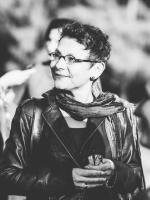 Dr Ella Stengler is the Managing Director of CEWEP (the Confederation of European Waste-to-Energy Plants) since July 2003.
Dr Ella Stengler is the Managing Director of CEWEP (the Confederation of European Waste-to-Energy Plants) since July 2003.
She is dealing with European and Public Affairs, European policy and legislation on waste, environment, emissions, energy, climate etc.
Before working for CEWEP, Ella was the Managing Director of ITAD, the German association of Waste-to-Energy Plants, and prior to that she was the Director of AGS the German association of hazardous waste companies (public private partnership).
Ella has published several articles in German and International journals.
She studied law in Germany and France.
Introduction
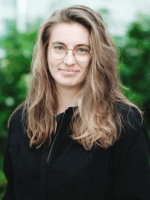 Leen De Bruycker is Technical & Scientific Officer at CEWEP, where she follows environmental and chemical legislation and works on topics such as PFAS, WtE residues and sewage sludge. She holds a master’s degree in Biochemical Engineering Technology from Ghent University (Belgium), with a focus on environmental biotechnology.
Leen De Bruycker is Technical & Scientific Officer at CEWEP, where she follows environmental and chemical legislation and works on topics such as PFAS, WtE residues and sewage sludge. She holds a master’s degree in Biochemical Engineering Technology from Ghent University (Belgium), with a focus on environmental biotechnology.
PFAS in Different Waste Treatment Streams
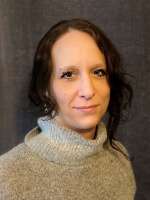 Dr. Julia Vogel, has been working as a research associate since 2014 at the German Environment Agency on different topics and is now leading the section “Waste Technology and Waste Technology Transfer”. After graduating in Environmental Science and Technology Engineering at TU Berlin (Germany), she obtained a PhD in Chemical Engineering from Swansea University (UK). She continued her research with a Post-doc in Environmental Chemistry at the University of Koblenz-Landau (Germany)
Dr. Julia Vogel, has been working as a research associate since 2014 at the German Environment Agency on different topics and is now leading the section “Waste Technology and Waste Technology Transfer”. After graduating in Environmental Science and Technology Engineering at TU Berlin (Germany), she obtained a PhD in Chemical Engineering from Swansea University (UK). She continued her research with a Post-doc in Environmental Chemistry at the University of Koblenz-Landau (Germany)
PFAS Restriction Proposal by Dossier Submitters
Thijs de Kort, National Institute for Public Health and the Environment – RIVM, the Netherlands (TBC)
Measurement Methods of PFAS Emissions to Air
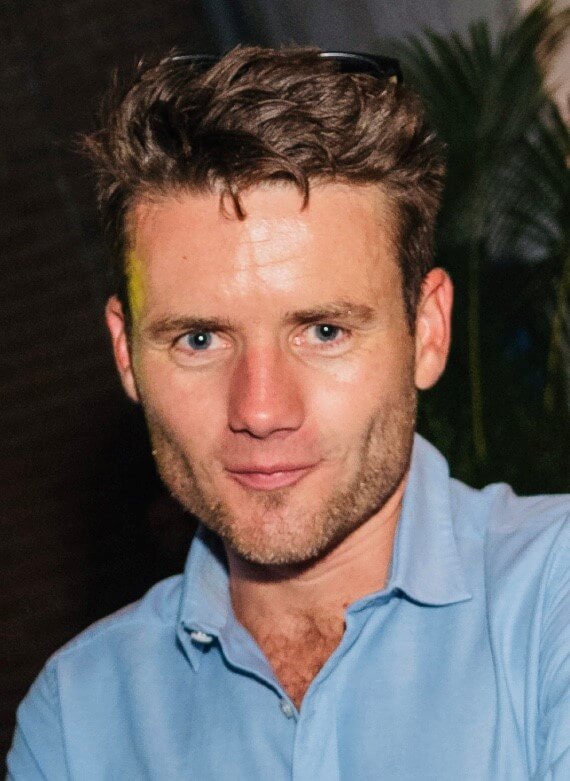 Jelle Hofman, Ph.D. in bioscience engineering and R&D researcher at the Flemish Institute for Technological Research (VITO) since 2021, working on (i) innovative environmental sensing applications for legislative (PM, NO2, O3) and emerging contaminants (BC and UFP) and (ii) methodological developments for PFAS monitoring in air emissions (stack monitoring), ambient air and dry/wet air deposition. Over 10 years of experience in the environmental monitoring field, from varying academics (postdoc University of Antwerp, BE), policy (Flanders Environmental Agency, BE) and technological/industrial (R&D at imec, NL and VITO, BE) perspectives. Recent CEN TC264 member involved in the new PFAS working group (WG 48).
Jelle Hofman, Ph.D. in bioscience engineering and R&D researcher at the Flemish Institute for Technological Research (VITO) since 2021, working on (i) innovative environmental sensing applications for legislative (PM, NO2, O3) and emerging contaminants (BC and UFP) and (ii) methodological developments for PFAS monitoring in air emissions (stack monitoring), ambient air and dry/wet air deposition. Over 10 years of experience in the environmental monitoring field, from varying academics (postdoc University of Antwerp, BE), policy (Flanders Environmental Agency, BE) and technological/industrial (R&D at imec, NL and VITO, BE) perspectives. Recent CEN TC264 member involved in the new PFAS working group (WG 48).
Fate of Fluoropolymers in WtE
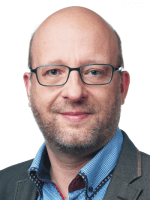 Hans-Joachim Gehrmann is currently Head of the Department “Combustion and Particle Technology” at the Institute for Technical Chemistry at the Karlsruhe Institute of Technology. He and his Team are working on Solutions for the Energetic Recovery of Waste from Carbon Fibre reinforced Plastics, e.g. from the Re-powering of Wind Turbines. To increase the Efficiency of CO2 Separation from Flue gases, the Oxyfuel Combustion in MSWI might be a promising Option – Fundamental Research is conducted at Lab- and Pilot scale. PFAS currently plays an important role not only in the field of Waste Incineration – several Research Projects are executed in the Team to evaluate the Combustion behaviour and develop Sampling Methods.
Hans-Joachim Gehrmann is currently Head of the Department “Combustion and Particle Technology” at the Institute for Technical Chemistry at the Karlsruhe Institute of Technology. He and his Team are working on Solutions for the Energetic Recovery of Waste from Carbon Fibre reinforced Plastics, e.g. from the Re-powering of Wind Turbines. To increase the Efficiency of CO2 Separation from Flue gases, the Oxyfuel Combustion in MSWI might be a promising Option – Fundamental Research is conducted at Lab- and Pilot scale. PFAS currently plays an important role not only in the field of Waste Incineration – several Research Projects are executed in the Team to evaluate the Combustion behaviour and develop Sampling Methods.
Hans-Joachim holds a Doctoral degree in Process Engineering.
Impact of Carbon Capture on PFAS in WtE
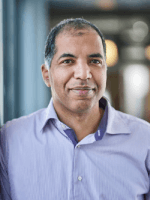 Dr Earl Goetheer is the Chief Technology Officer of the Dutch venture builder HighTechXL and he is also connected to the Technical University of Delft. He is a chemical engineer, with more than 25 years of experience in the field of gas treatment (i.e. as a principal scientist at TNO). Earl has a keen interest in the field of CO2 capture and CO2 utilisation. He is as well focused on scouting innovative deep tech related technologies with high startup potential. He has more than 70 patent (applications) and published more than 100 articles.
Dr Earl Goetheer is the Chief Technology Officer of the Dutch venture builder HighTechXL and he is also connected to the Technical University of Delft. He is a chemical engineer, with more than 25 years of experience in the field of gas treatment (i.e. as a principal scientist at TNO). Earl has a keen interest in the field of CO2 capture and CO2 utilisation. He is as well focused on scouting innovative deep tech related technologies with high startup potential. He has more than 70 patent (applications) and published more than 100 articles.
Panel: Practical Experience of Measurements & Measurement Campaigns
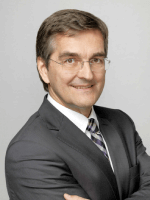 Dr Ragnar Warnecke is the managing director of GKS-Gemeinschaftskraftwerk Schweinfurt GmbH, Schweinfurt, Germany, a coal heat and power plant and a waste-to-energy plant. After having studied Mechanical Engineering at the University Duisburg-Essen he worked at IUTA, Duisburg, an institute for energy and environmental research and consulting. He received his Ph.D. at the department for Thermodynamics at the University Duisburg-Essen working in the field of pyrolysis and gasification. 1995 he changed to Noell-KRC, Würzburg, Germany, a famous plant builder for waste and hazardous waste incineration plants, where he became head of the engineering department and was responsible for trouble-shooting worldwide. As member of the board, he worked at Cutec, Clausthal, Germany, a research and consulting company, from 2001 to 2002. Since 2003 he is the managing director at GKS.
Dr Ragnar Warnecke is the managing director of GKS-Gemeinschaftskraftwerk Schweinfurt GmbH, Schweinfurt, Germany, a coal heat and power plant and a waste-to-energy plant. After having studied Mechanical Engineering at the University Duisburg-Essen he worked at IUTA, Duisburg, an institute for energy and environmental research and consulting. He received his Ph.D. at the department for Thermodynamics at the University Duisburg-Essen working in the field of pyrolysis and gasification. 1995 he changed to Noell-KRC, Würzburg, Germany, a famous plant builder for waste and hazardous waste incineration plants, where he became head of the engineering department and was responsible for trouble-shooting worldwide. As member of the board, he worked at Cutec, Clausthal, Germany, a research and consulting company, from 2001 to 2002. Since 2003 he is the managing director at GKS.
Numerous of his works in the field of high-temperature corrosion, fouling in boilers, CFD-simulation and optimisation of combustion chamber and boiler especially in waste-to-energy plants have been published.
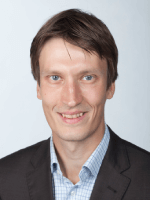 Dr Ir Andres Van Brecht obtained the degree of Bioengineering in Agricultural Engineering from KU Leuven in 1998. In November 1998, he started his doctoral research under the direction of Prof Berckmans at the Faculty of Bioengineering at KU Leuven. In 2004, he defended his PhD titled ‘A Concept for the Control of Imperfectly Mixed Fluids for a New Generation of Incubators’. From 2005 to 2007, he worked at KU Leuven as a post-doctoral fellow. Since March 2007, he has been working at Indaver, where he is involved in numerous research projects, including studies on waste treatment, residue management and LCA studies on the impact of waste treatment and choices regarding waste treatment techniques. He also monitors changes in European waste legislation and technologies to process/recycle waste. Andres is Indaver’s PFAS specialist and works full-time on monitoring and continuously improving the processing of waste (containing PFAS). Furthermore, he is also the contact person for customers and government institutions. He therefore has extensive expertise in industrial processing of (PFAS-containing) waste and (PFAS) analysis.
Dr Ir Andres Van Brecht obtained the degree of Bioengineering in Agricultural Engineering from KU Leuven in 1998. In November 1998, he started his doctoral research under the direction of Prof Berckmans at the Faculty of Bioengineering at KU Leuven. In 2004, he defended his PhD titled ‘A Concept for the Control of Imperfectly Mixed Fluids for a New Generation of Incubators’. From 2005 to 2007, he worked at KU Leuven as a post-doctoral fellow. Since March 2007, he has been working at Indaver, where he is involved in numerous research projects, including studies on waste treatment, residue management and LCA studies on the impact of waste treatment and choices regarding waste treatment techniques. He also monitors changes in European waste legislation and technologies to process/recycle waste. Andres is Indaver’s PFAS specialist and works full-time on monitoring and continuously improving the processing of waste (containing PFAS). Furthermore, he is also the contact person for customers and government institutions. He therefore has extensive expertise in industrial processing of (PFAS-containing) waste and (PFAS) analysis.
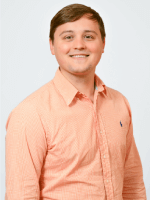 Gabriel Volcovschi is the Secretary General of SVDU (the French association of Waste-to-Energy plants). In this capacity, he manages the association and supports operators specialising in Waste-to-Energy recovery while representing the sector before national and European authorities. He monitors regulatory developments, addresses technical challenges, and engages in lobbying activities, thereby contributing to the definition of the sector’s strategic directions.
Gabriel Volcovschi is the Secretary General of SVDU (the French association of Waste-to-Energy plants). In this capacity, he manages the association and supports operators specialising in Waste-to-Energy recovery while representing the sector before national and European authorities. He monitors regulatory developments, addresses technical challenges, and engages in lobbying activities, thereby contributing to the definition of the sector’s strategic directions.
Gabriel is a process engineer specialising in thermal and energy systems. He has held several key positions in the field of thermal waste treatment. Notably, he worked as a process engineer in thermal sludge management at Suez before becoming a technical project manager at Paprec, where he focused on municipal waste incineration and the design of refuse-derived fuel boiler systems.
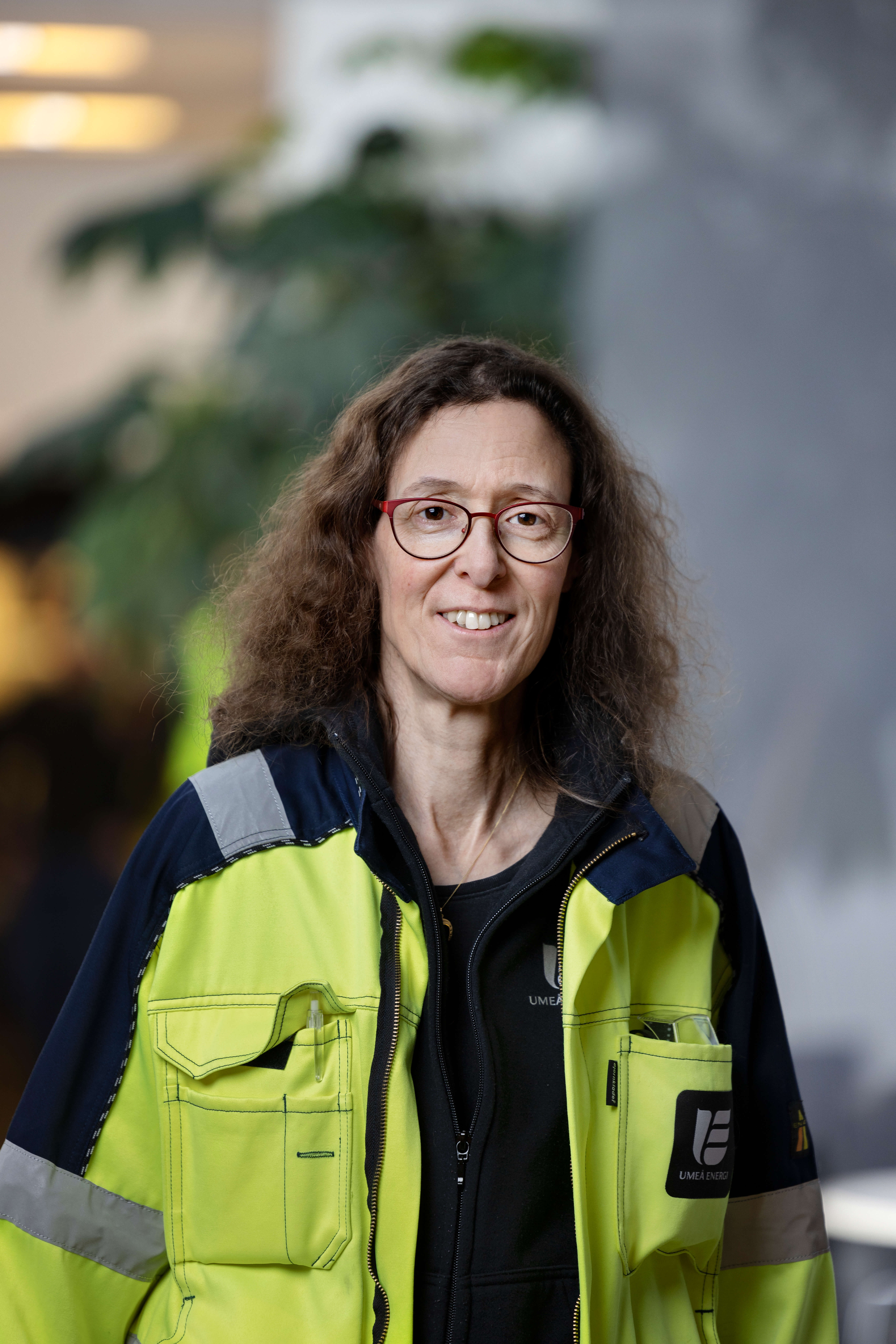 Åsa Benckert currently works as a Senior Environmental Engineer at Umeå Energi, a municipally owned energy company located in the city of Umeå in the north of Sweden. She has a background as a Master of Science in Environmental Planning and has been working with the environmental issues concerning waste-to-energy for close to 30 years. Main focus today is on legislation, both Swedish and European such as the IED and BAT.
Åsa Benckert currently works as a Senior Environmental Engineer at Umeå Energi, a municipally owned energy company located in the city of Umeå in the north of Sweden. She has a background as a Master of Science in Environmental Planning and has been working with the environmental issues concerning waste-to-energy for close to 30 years. Main focus today is on legislation, both Swedish and European such as the IED and BAT.
She is involved in Avfall Sverige, Swedish Waste Management, and a working group on emissions.
Umeå Energi has an ongoing cooperation with the university of Umeå and through collaborating with the Industrial Doctoral School she is the external supervisor for two PhD students. The subjects are “Per- and polyfluoroalkyl substances in municipal solid waste and their fate in incineration” and “Online determination of fossil carbon dioxide emissions in incineration plants”
Should you have any questions, please do not hesitate to contact us at events@cewep.eu.